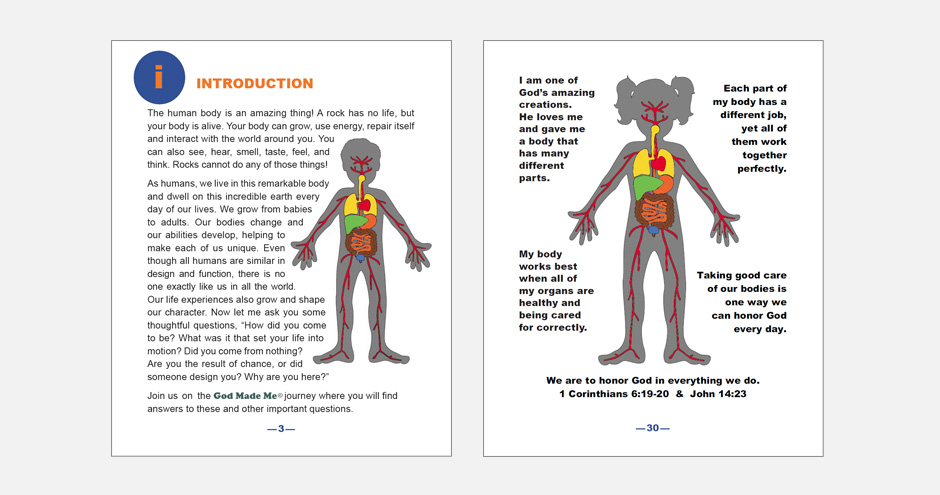The Human Body
Since the mind and the soul find expression through the body, both mental and spiritual vigor are in great degree dependent upon physical strength and activity; whatever promotes physical health, promotes the development of a strong mind and a well-balanced character. Without health no one can as distinctly understand or as completely fulfill his obligations to himself, to his fellow beings, or to his Creator. Therefore the health should be as faithfully guarded as the character. A knowledge of physiology and hygiene should be the basis of all educational effort.
So closely is health related to our happiness that we cannot have the latter without the former. A practical knowledge of the science of human life is necessary in order to glorify God in our bodies. It is therefore of the highest importance, that among the studies selected for childhood, physiology should occupy the first place. How few know anything about the structure and functions of their own bodies, and of nature’s laws! Many are drifting about without knowledge, like a ship at sea without compass or anchor; and what is more, they are not interested to learn how to keep their bodies in a healthy condition and prevent disease.
Though the facts of physiology are now so generally understood, there is an alarming indifference in regard to the principles of health. Even of those who have a knowledge of these principles, there are few who put them in practice. Inclination or impulse is followed as blindly as if life were controlled by mere chance rather than by definite and unvarying laws.

Children should be early taught, in simple, easy lessons, the rudiments of physiology and hygiene. The work should be begun by the mother in the home and should be faithfully carried forward in the school. As the pupils advance in years, instruction in this line should be continued until they are qualified to care for the house they live in. They should understand the importance of guarding against disease by preserving the vigor of every organ and should also be taught how to deal with common diseases and accidents. Every school should give instruction in both physiology and hygiene, and, so far as possible, should be provided with facilities for illustrating the structure, use, and care of the body.
There are matters not usually included in the study of physiology that should be considered--matters of far greater value to the student than are many of the technicalities commonly taught under this head. As the foundation principle of all education in these lines, the youth should be taught that the laws of nature are the laws of God--as truly divine as are the precepts of the Decalogue. The laws that govern our physical organism, God has written upon every nerve, muscle, and fiber of the body.
By a most beautiful and impressive figure, God's word shows the regard He places upon our physical organism and the responsibility resting on us to preserve it in the best condition: "Know ye not that your body is the temple of the Holy Ghost which is in you, which ye have of God, and ye are not your own?" "If any man defile the temple of God, him shall God destroy; for the temple of God is holy, which temple ye are." [I Corinthians 6:19; 3:17]
Let pupils be impressed with the thought that the body is a temple in which God desires to dwell, that it must be kept pure, the abiding place of high and noble thoughts. As in the study of physiology they see that they are indeed "fearfully and wonderfully made" (Psalm 139:14), they will be inspired with reverence. Instead of marring God's handiwork, they will have an ambition to make all that is possible of themselves, in order to fulfill the Creator's glorious plan. Thus they will come to regard obedience to the laws of health, not as a matter of sacrifice or self-denial, but as it really is, an inestimable privilege and blessing.


